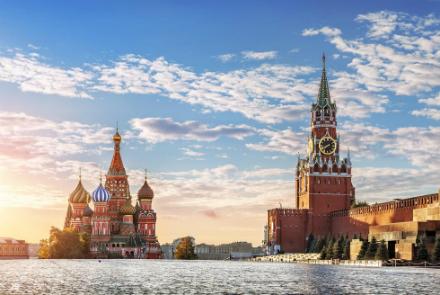Pakistan will attend the planned meeting on peace in Afghanistan that is expected to take place in Moscow soon, Pakistani officials said Saturday, Pakistan’s Daily Times reported.
The Daily Times reported that senior officials would represent the country – possibly the Foreign Secretary Tehmina Janjua.
Originally the meeting was scheduled for September 4 in Moscow, but Afghanistan refused to attend citing that any such discussions should be Afghan-led.
When the US turned down the invitation to attend, Kabul followed suit. This came after the Taliban announced it would send a delegation to Moscow from Qatar.
However, Russia’s Interfax news agency recently reported that the meeting would now take place on November 1 and that Kabul and the Taliban would both attend.
But Russia’s Foreign Ministry Spokesperson Maria Zakharova said on Thursday that details including the date and attendees were still being worked on. She said no date had yet been decided on.
In August it was confirmed that Afghanistan and Russia would co-chair proposed talks in Moscow on Afghanistan’s peace, the Ministry of Foreign Affairs (MoFA) said.
Nasir Andisha, Acting Deputy Foreign Minister for Management and Resources said at the time: “Delegations from Afghanistan, the Russian Federation, the Central Asian countries and Afghanistan’s partners are working on a timeline and agenda for the meeting. We will determine the time based on a consensus.”
When asked about Afghan government’s opposition to the original plan, Andisha said: “It is not about who talks with the Taliban and how we react to it. The point is whether we can accept the fact that the Taliban attends (the talks) as a (single) party at a multilateral discussion where independent countries are attending?”
Officials from Afghanistan’s High Peace Council (HPC) said the Afghan government objected to the Moscow talks because the conference had been scheduled without their permission and without it being Afghan-led.
“All countries which have met with the Taliban have asked for Afghan government’s permission but the Russian’s case was no doubt different,” said HPC spokesman Sayed Ehsan Tahiri.
Moscow’s efforts are however not the only attempts to bring peace to Afghanistan.
In recent months, the US has stepped up its efforts to talk peace with the Taliban and is known to have met with the group’s leaders on a few occasions in Qatar.
In late September, US Secretary of State Mike Pompeo officially announced the appointment of Ambassador Zalmay Khalilzad as Special Representative for Afghanistan Reconciliation.
Pompeo said in a memo that Khalilzad will lead US efforts to support, facilitate, and participate in a peace process between government and the Taliban.
“There is no one better suited for this duty than an expert diplomat like ambassador Khalilzad, who was born and raised in Afghanistan, and has previously served as the US ambassador to Afghanistan, Iraq, and the United Nations,” Pompeo said in a memo.
In the memo Pompeo said he was confident in Khalilzad’s ability to execute the mission.
“I am confident in Ambassador Khalilzad’s ability to execute this mission, and we are grateful for his willingness to step back into public service. As we welcome him back to the Department, let us rededicate ourselves to achieving a durable peace in Afghanistan that will ensure security for the American people. This goal is realistic. We have a team in place to accomplish it. Let’s get the job done,” said Pompeo in the memo.
Khalilzad has since paid a fleeting visit to the region including two trips to Afghanistan, to Pakistan, Saudi Arabia, UAE and Qatar.
While in Qatar, he met with a Taliban delegation in a bid to break the deadlock over the peace process.
The group confirmed in a statement that its members met with Khalilzad. They said the head of the Qatar political office Sher Mohammad Abbas Stanekzai, Mawalwi Salam Hanafi, Shuhabuddin Delawar, Qari Deen Moh. Hanif, Zahed Ahmadzai and Sohail Shaheen were at the meeting.
This is the second meeting of a top US official with the Taliban.
In July, Alice Wells, the US Principal Deputy Assistant Secretary for the Bureau of South and Central Asian Affairs met with Taliban officials to discuss ways to lay the groundwork for peace talks.
Earlier this month, the head of the High Peace Council, Mohammad Karim Khalili, said some members of the council have also indirectly exchanged ideas with the Taliban leadership and have been told by the group’s leadership that war is not the solution for Afghanistan’s crisis.
Addressing a consultation meeting with political figures and parties on the peace process on October 17, Khalili said the Taliban leadership has reached the decision that war is not the answer.
“We have passed on our ideas and have got their ideas with the Taliban at different levels even with the leadership of the Taliban movement. All these have happened through mediation,” Khalili said.
The HPC officials said that President Ashraf Ghani has started discussions about forming an authorized and inclusive delegation to handle peace talks with the Taliban.
“The involvement and coordination by the US as well as China, Russia, India and Britain are necessary. We are trying to have other countries’ consensus on peace,” said Akram Khpulwak, head of the HPC Secretariat.
However, no details on the Moscow talks dates have been announced by the Afghan government as yet.


